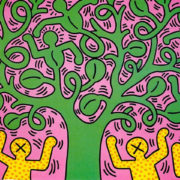The history of relations between United States and China is about many things – it is about ideology, geopolitics, global rivalry; it may be a clash of civilizations, trade, human rights, et cetera. But it is also about sentiments: Americans felt betrayed after 40 years of giving almost everything to China.
A different sense of betrayal starts early in the 1940s, or even a decade before, when the US establishment was uncertain whether to back the despicable and corrupt Nationalist (KMT) generalissimo Chiang Kai-shek or the romantic communist intellectual bandits of Mao Zedong. Eventually the US chose Chiang because they judged Mao too communist, but many remained unconvinced and thought Washington nudged Mao toward the Soviets, as John Pomfret also wrote in his The Beautiful Country and the Middle Kingdom: America and China, 1776 to the Present.
Sentiments in theory should not be important in conflicts, or so modern politics tells us. But ancient wisdom says otherwise. Ultimately the Greeks went to war against Troy for the abduction of Helen, the wife of one of their kings; it was rage, a sentiment, says the Iliad. More philosophically, in the 4th century BC, grand master Mo rejected the selfish doctrine of the Yangist master Wuma, arguing that men don’t move just for self-preservation. People are willing to go to war and risk their lives because there is something more important than life: yi, pride, the sense of being right, or the sense of being wronged. All are very strong sentiments.
But the real issue is what Mao gave the Soviets in return for their support in winning the civil war against the KMT.
The Soviet price
Moscow imposed on China conditions of virtual occupation. Although coated in communist brotherly slogans, they were much harsher than those levied by any colonial power, singularly or collectively, since the 1840 Opium War, including during the Japanese occupation. And the relation was made clear with the catchphrase in which the older brother was Moscow and the younger brother was Beijing. In Chinese older brother means “the boss” and younger brother stands for the sidekick.
China had to give up millions of square km of territory: all of Mongolia, plus large swaths of territory over the northeast and northwest – about 20% of the land claimed by the KMT’s Republic of China. Soviet advisers were in all of the key positions in the Chinese state. The USSR helped to build new industry in China, but it also took away all the modern former Japanese facilities in Manchuria. Most importantly it imposed on China a political and economic system that was largely responsible for the underdevelopment of the country before the start of the reforms.
The territorial losses are still there and so is the political system, which is now at the center of international disputes and the source of most Chinese malfunction.
During the 1950s China was de facto and de jure part of the Soviet Empire. Moscow ordered Beijing to fight for North Korea, and so Beijing did, putting Russian political considerations over Beijing’s priority to recover Taiwan, which is now China’s worst geopolitical nightmare. All thanks to that Russian-ordered Korean war.
China managed to wrest out of this colonial vassalage because Stalin died in 1953, and the internal and international order he established was crumbling. In fact, the crucial execution of Gao Gang, the pro-Soviet “overlord” of Manchuria, occurred in 1954. The 1956 Hungarian uprising, its violent Soviet crackdown, and the earthquake of consciousness it caused around the world shook the foundation of domestic and global Soviet ideological legitimacy.
The crisis of the Berlin Wall and Castro taking power in Cuba, in the late 1950s and early 1960s all strongly undermining soviet leadership in the West, led to the USSR gradually losing its grasp of China.
How Khrushchev’s USSR lost control of China between the late 1950s and the early 1960s is still not very clear. But it all happened at a great cost for China. Isolated, and without foreign support or guidance, China in the 1960s almost stumbled into the self-delusion of the Cultural Revolution and got picked up again not simply because Mao wanted to open to America, but perhaps mainly because America wanted a political success out of the Vietnam disaster.
The US gift
Compare all of this with what the US did for China in 40 years. It granted low import tariffs and technological transfers since the late 1970s, which triggered the first round of modernization. Since the 1990s, it turned a blind eye to the Chinese IPR theft that was impoverishing and endangering US companies and provided a safe, stable international order in which China’s economy boomed.
Moreover, the collapse of the Soviet empire left a huge political vacuum in Central Asia, which China is gradually occupying recovering de facto, although not de jure more than the territory China had lost to the USSR. Yet the demise of Soviet was not caused by China, it was because of the American pressure, yet de facto China reaped most of the geopolitical benefits.
All of this made Chinese richer than ever in their history, and with the largest ever area of geographical influence. It is thanks to their efforts, but it would have been impossible without the US contribution. In other words, Chinese people are richer and their influence is globally spread mostly because of the US efforts. Although the US didn’t aim to do so, it didn’t oppose much when it happened.
In return for all of this, the US didn’t impose a political order by force, like the USSR or the colonial powers. It tried to smoothly promote political and economic reforms that it genuinely thought were beneficial for the US, for China, and for the world.
Now, after 40 years of peaceful attempts, these changes failed to come through, and the Americans are embittered and feel deeply wronged.
A cynical view or ingratitude?
Yes, cynics and realists do know there are other, cruder parts of this story. But the beady positive element of it is also true. There was and there is something good for everybody, including China, in the changes desired by the US.
Yes, the Greeks didn’t wage war on Troy because of Helen; they wanted to wrest the rich trade of the Bosporus and Asia from the Trojans. But if Paris had been kinder, and had observed the simple rules of courtesy stating, when you are invited for dinner do not seduce and abduct the wife of the host, the Trojan-Greek controversies might have been solved without a war.
Therefore, when Vice President Michael Pence says it is up to China to avoid a Cold War, he is repeating with tougher words what the US has been trying to say without force and with persuasion for decades. Pence argues the US didn’t want to harm China, it aided to make the Chinese and China rich and modern.
In other words, bluntly put, many Americans feel they helped China save itself from utter poverty and destitution. The US didn’t impose rules by force, but tried to persuade China to adapt to the ways of the world, which made China effectively better off.
China took the gift and now doesn’t want to adopt international norms, and in many ways, China challenges the US, its greatest benefactor in history, and the international order with something that will ultimately damage everybody – the world, the US, and China itself. What’s wrong China? wonder many Americans. Beijing apparently only understands force, so we better deal with her with force, they think.
Can China persuasively answer Americans on this?







Dear Francesco,,
To accuse China for being ungrateful to the US is to over expect from China’s sense of indebtedness to America. For the thirty years after the onset of reform, China did indeed regard the US as the laodage. A constant stream of visiting scholars came to the US to learn from universities, governments and methods of governance was one indicator. During this process, Beijing put up with air space and offshore incursion by the American military and American sense of exceptionalism as if such rights truly belong to American birthright. At no time did I see Chinese admiration of American ways extend to the American system of government. That some China scholars in America saw China to eventually become “more like us” was not founded in fact but merely an affliction of their own optimism.
The financial crisis of 2008 was a real shock to China. They were truly disillusioned by the big brother’s feet of clay. Starting with Hu Jintao, Beijing begin to suggest that the US should consider sharing the leadership platform with China and to treat China more as a peer. Even then, China was not disrespectful nor wish to compete on the military side. Even now, Beijing accepts far more hostile rhetoric from Washington than returning the favor. Their foremost wish continues to want to find a way to work with Washington.
At the beginning of Obama’s first term, he did extend a willing hand toward Beijing to see how collaboration could work. Unfortunately, I believe Xi Jinping did not seize the opportunity at the time and that willingness to collaborate was soon replaced by guarded competition. Today, the tragedy is Xi having to deal with an US president that is economically illiterate.
To be fair, I do think the Chinese people and the Beijing government deserves some credit for the miracle i.e., the economic success of the last forty years. Not just American generosity and good will.
This is very interesting indeed. Given the importance of these matters to properly understand what is actually going on in what is now called “trade war” I would like to read more on the matter. In fact I would like to suggest you to elaborate on the argument and publish something available to the broader public which also dissects other points of view and allows the voters to have some perspective when they evaluate the current stance of their governments in the geopolitical scene… No matter how bad they are at picking the words to use.
Well, delectable food for thought on the annual day of turkey-eating!
I wonder, though, is this is really the case:
In return for all of this, the US didn’t impose a political order by force, like the USSR or the colonial powers. It tried to smoothly promote political and economic reforms that it genuinely thought were beneficial for the US, for China, and for the world.
Now, after 40 years of peaceful attempts, these changes failed to come through, and the Americans are embittered and feel deeply wronged.
It is axiomatic that for Americans, “long-term strategy” is something for next year, maybe next month. And “history” is what happened yesterday, maybe last month. I doubt that most Americans have a clue about the history of US-China relations since Nixon/Kissinger. Fewer have a living memory of the Cold War and what it meant; it ended almost 30 years ago, and the median age in the country is 37.7 years, which means that around half of Americans know the Cold War as something from the history books and think of Nixon as somebody who ruled about the same time as the Pharaohs.
I therefore suspect that few Americans outside the (aging) circles of academics and think tank specialists harbor any sense of disillusionment or bitterness about China’s “response” to our previous “generosity” (which was, of course, extended in our perceived national interest).
The reaction to China’s rise is more elemental than that. China is increasingly perceived as a serious competitor that does not “play fair” (few Americans stop to ponder whether WE “play fair” or in fact whether we SHOULD “play fair”) and will challenge us sooner or later for primacy in the world. Politicians play on such attitudes, and that is what we are seeing today.
There are real issues of concern in China’s behavior, and in US-China bilateral relations, but the right wing has been trying to whip up anti-China fears from the day that the Cold War ended … having a formidable enemy is what sustains the defense industry, buttresses Wall Street investment decisions, supports the U.S. economy, and galvanizes a kind of superficial unity in a nation that so conspicuously is no longer unified on many matters of domestic or foreign policy.
For a while, the right wing was happy to conjure up the Islamic World as the existential threat to the U.S., for the never-ending “global war on terrorism” also supported the defense industry and military establishment and tended to unite Americans against the “threat” from a suspicious, little-understood “other” out there in the world. But Americans no longer are thrilled by our never-ending wars in Afghanistan, Iraq and the greater Middle East, so those who favor constant warfare — fought by other people’s children, of course — are obliged to shift attention to the wily, duplicitous and formidable Chinese.
What a fascinating article, thank you so much. I am so glad you made these points which are new to me. I am so used to America getting kicked it is easy to lose perspective.
Francesco
This is a very original reading.
Thank you
HOW ‘BOUT THIS:
Francesco, this is an IMPORTANT essay, and one which really resonates personally, as I have of late told Chinese students in Beijing and elsewhere that American “China hands” my age (74) are not just surprised and disappointed at the apparent final end of the Deng-Jiang Era of serious opening to and cooperation, where possible, with the US-led post WW2 liberal international order. In fact, berating us for “containing” and “trying to turn back the clock” actually hurts our feelings, silly as that may sound!
Since being the staff “note taker” for a June, 1978 meeting in which the then-Paramount Leader used our Congressional delegation to “send a message” to then-Pres. Carter to stop talking and start moving on actual “normalization” (and then personally briefing then-Sec St Vance, A/S Asia Holbrooke, and the much-missed Mike Oxenberg on the NSC) folks like me consider we’ve spent a major portion of our professional lives trying to help China become the modern giant it is now, as you so cogently describe.
So your essay is important for the younger generation of Chinese academics and leaders to see NOW, as I fear they have no comprehension of what the past 40 years really entails, and so do not “hear” the criticisms from us as intended…a plea for reason and serious adult discussion…even more important than ever in the Age of Trump.
All the best, and thanks again.
Chris N
The Nelson Report